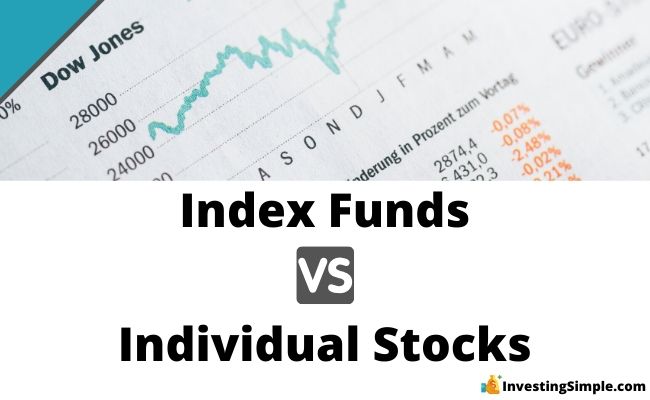Index Funds vs individual Stocks: Pros, Cons, and Which One to Choose in 2025
Index Funds vs. Individual Stocks: Which Investment Strategy is Right for You?
Introduction
Investing today is easier than ever—but with choices come questions. One of the most common ones:
Should I invest in index funds or individual stocks?
Both have their pros and cons. Your decision can significantly affect your returns, risk tolerance, and time commitment. In this guide, we’ll break down the differences to help you decide what’s best for your investment goals.
What Are Index Funds?
An index fund is a type of mutual fund or ETF (Exchange Traded Fund) that tracks a market index like the Nifty 50, S&P 500, or Sensex.
📌 Key Features:
-
Diversified: Holds dozens or hundreds of stocks
-
Passive Management: No active stock picking
-
Low Cost: Very low expense ratios
-
Steady Returns: Mirrors market performance
Example: If you invest in an S&P 500 index fund, your money is spread across 500 large U.S. companies.
What Are Individual Stocks?
Individual stocks represent ownership in a single company (e.g., Apple, Reliance, TCS). When you buy a stock, you're betting on that company’s future performance.
📌 Key Features:
-
Higher Risk / Reward: Potential for big gains—or losses
-
Active Management: Requires research and timing
-
More Volatile: Prone to market sentiment and news
-
Customization: You control what you own
Example: Buying Tesla stock means you’re investing only in Tesla—not the broader market.
Index Funds vs. Stocks: Side-by-Side Comparison
| Feature | Index Funds | Individual Stocks |
|---|---|---|
| Risk | Low to moderate (diversified) | High (concentrated) |
| Return Potential | Market average (7–10% long term) | Can outperform—or underperform—market |
| Time Required | Minimal | High (research, monitoring) |
| Costs | Low expense ratios | Brokerage fees may apply |
| Best For | Long-term, passive investors | Active traders, market enthusiasts |
When Should You Choose Index Funds?
You're a beginner investor
Starting your investing journey and want a simple, low-risk option.-
You want steady, long-term growth
Prefer consistent returns over trying to “beat the market.” -
You don’t have time to track markets
You’re busy and prefer a “set-it-and-forget-it” approach. -
You want to reduce risk via diversification
Index funds spread your investment across many companies, lowering individual risk.
Index funds offer “set-it-and-forget-it” simplicity with historically reliable returns.
When Should You Choose Individual Stocks?
You enjoy researching companies
You like digging into earnings reports, industry trends, and company news.-
You’re confident in your stock-picking skills
You trust your ability to identify undervalued or high-growth stocks. -
You want a shot at above-average returns
You're aiming to outperform index funds and grow your wealth faster. -
You can tolerate short-term volatility
You’re okay with market swings and don’t panic during downturns.
(Picking winners like Apple or Infosys early can be lucrative—but risk is high)
Historical Performance Snapshot
-
Index Funds (S&P 500): ~10% annualized return over the past 40 years
-
Individual Stocks: Some have returned 1000%+, but many underperform or fail entirely
-
80–90% of active stock pickers fail to beat the market over the long term (source: SPIVA)
Hybrid Strategy: Best of Both Worlds?
Some investors combine both:
-
80% in index funds for stability
-
20% in individual stocks for growth potential and learning
This method gives you market exposure with room for experimentation.
Final Thoughts
Index funds are ideal for most people: low cost, low stress, and decent returns.
Individual stocks offer high reward—but only if you’re willing to do the work and handle the risks.
Choose based on your goals, risk appetite, and time commitment. There’s no one-size-fits-all.


Comments
Post a Comment